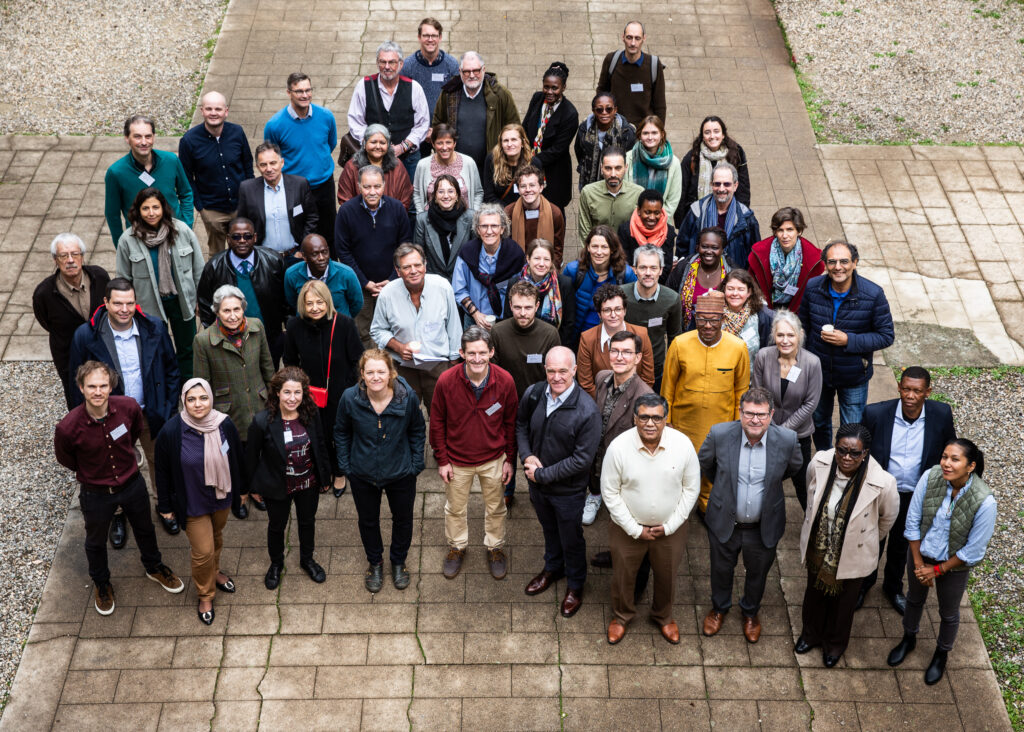Preparations are well underway for the 5th Global Foresight4Food Workshop set to take place in Amman, Jordan, from 15 to 19 June 2025. This dynamic event will bring together foresight thought leaders, innovators, and changemakers from around the world. Designed to spark dialogue, ignite creativity, and drive tangible progress, the workshop offers a unique platform to advance the global foresight agenda for food systems.
In the lead-up to the event, Asem Nabulsi —Foresight4Food FoSTr Programme Deputy Facilitator in Jordan—shares his perspectives on the critical challenges and emerging opportunities shaping global food systems. In this blog, he offers valuable insights into the urgent need for systemic change and highlights the powerful role foresight can play in building a more equitable, nutritious, and sustainable future.
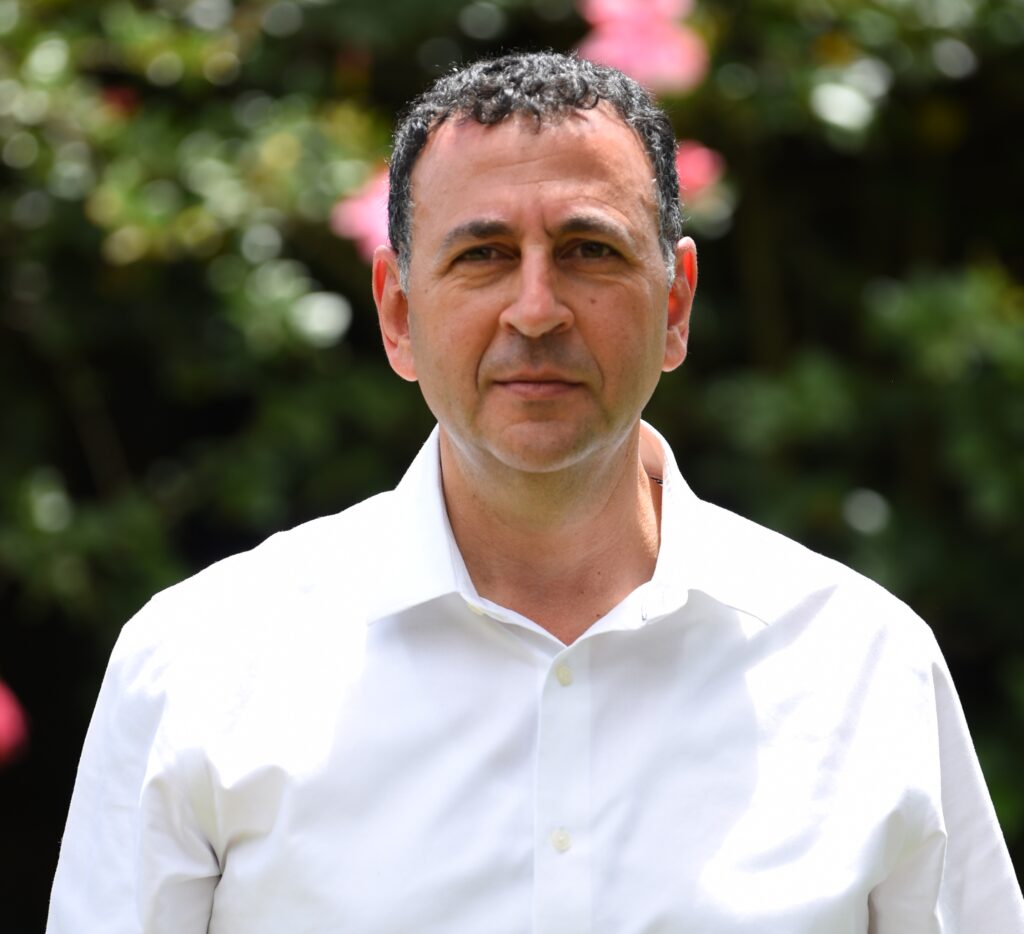
Beyond the Macro Lens: Reclaiming the Food System Narrative
A critical concern shared by many in the global food space is that the decisions influencing food systems are often made at the macro level, detached from the lived realities of communities and the interconnected outcomes they produce. The fragmented approach overlooks how policies and practices affect health, nutrition, livelihoods, and the environment. Foresight provides the structure to consider these dimensions together, helping stakeholders envision multiple futures and make informed, holistic decisions.
Sharing Real-world Experiences
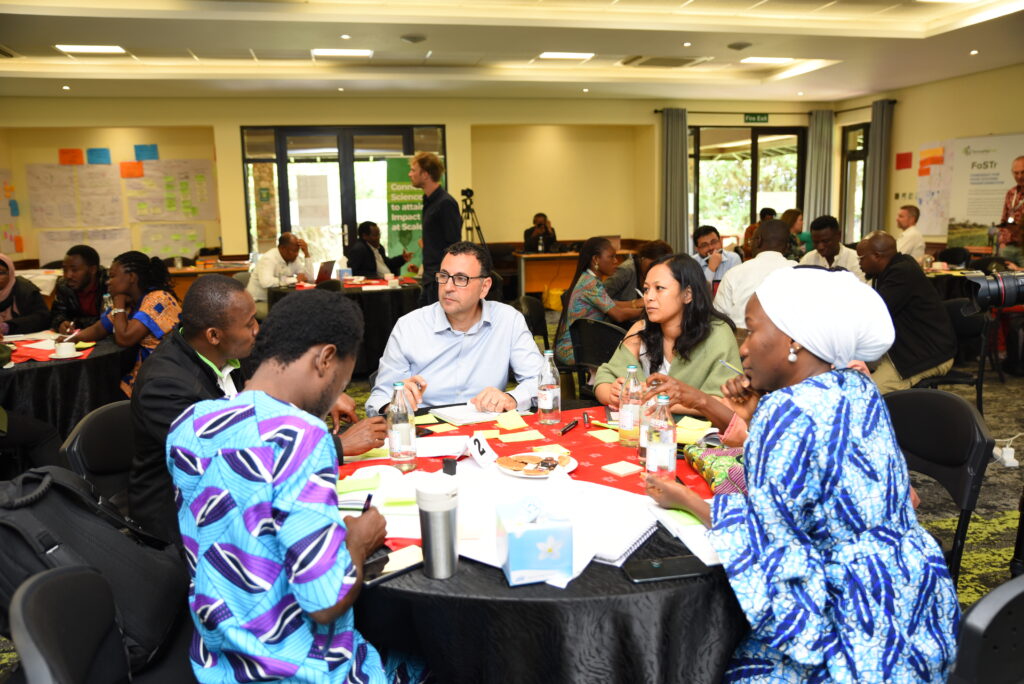
The success of the upcoming Foresight4Food Global Workshop hinges on more than dialogue—it depends on active participation, sharing real-world experiences, and co-creating concrete, implementable recommendations.
When foresight thought leaders, innovators, and food system stakeholders from around the world sit together, it should not just be about knowledge exchange; it should be about laying the groundwork for lasting change through mutual understanding and collective action.
From Dialogue to Action: Integrating Insights into Practice
I see this global workshop as a springboard to rethink professional strategies. One needs to fully understand the importance of multistakeholder perspectives and collaborative design of actions that consider the full spectrum of affected groups. This approach ensures that decisions are not only visionary but grounded in equity and practicality.
Regional Collaboration: The Untapped Potential
While food systems are often discussed within national borders, I would like to remind you that no country exists in a vacuum. Regional interdependence, from raw materials to trade and market access, necessitates greater collaboration. To build more resilient food systems, I suggest enhancing bilateral and multilateral trade, establishing regional food hubs, diversifying trade routes, and creating supportive regulatory frameworks. These steps could buffer regions against future disruptions and strengthen food sovereignty.
The Leadership Imperative
Leadership is essential for steering transformation. Setting a suitable regulatory environment, mapping the current food system and agreeing on the goals and best way forward to reach the desired goals, fostering a cooperative environment for change, uniting stakeholders understanding and action towards the desired goals, taking the decisions and actions that incentivise actions that enhance positive food system transformation at the different levels and for different stakeholders, raising awareness for all actors affecting and being affected by food systems, creating a national re-iterative process to regularly examine the efficacy of changes made and looking out for changing factors that might affect the food system, and starting the communication and actual practical steps for regional cooperation.
From Vision to Implementation: Making Collaboration Stick
A practical roadmap to ensure the workshop leads to a lasting impact is to focus on the importance of moving from vision to implementation. It means building a shared understanding, defining common goals, and designing actions that are informed by the perspectives of diverse stakeholders across multiple levels. Open discussions around potential trade-offs and strategies to mitigate negative impacts are also key. To translate dialogue into action, I would highlight the need for clear, well-defined plans with assigned responsibilities and timelines. I believe that this structured yet adaptable approach is crucial for fostering durable cross-sector collaboration and meaningful progress.
With these reflections in mind, I look forward to welcoming you in Jordan and seizing this unique opportunity to catalyse both regional and global efforts toward meaningful food system transformation.
By Bart de Steenhuijsen Piters
Foresight4Food is organizing its 5th Global Workshop in June titled “Foresight for Transformative Action in Food System”. To raise the tip of the curtain on this exciting event, we have asked Bart de Steenhuijsen Piters, Senior Scientist Food System at the Wageningen University and Research and Foresight4Food FoSTr programme facilitator, to share some of his thoughts and expectations. Here is what he has to say:

The myth of the “Global” food system
As we approach the 5th Global Foresight4Food Workshop in Jordan, I find myself reflecting on what it truly means to transform our food systems—and what role foresight can play in helping us get there.
Let me begin with a provocation: I believe the idea of a global food system is, in many ways, an illusion.
When we speak about the global food system, we often forget that it’s simply the aggregation of countless national and subnational systems. No one actor is responsible or able to govern it. The UN may think so, but that is an illusion. Instead, we have trillions of individuals, institutions, and businesses shaping the system every day. This diffused responsibility makes governance incredibly complex and leads to a kind of mystification, where the real (geo)political and economic dynamics at lower levels are ignored or misunderstood. Yet, all these food systems are connected for sure. Just look at the effect of the Trump administration and its tariff policies on food markets worldwide.
This is precisely where foresight can help—not by giving us a top-down blueprint but by helping us navigate complexity, anticipate challenges, and co-create transformative pathways.
What success looks like for the 5th Global Foresight4Food Workshop
For me, success for the 5th Foresight4Food Workshop doesn’t lie in just producing new scenarios. It lies in helping us figure out how to act in those scenarios.
I want us to co-develop a joint narrative around food system transformation. I want us to compare how different countries are exploring their options. Most importantly, I want us to dive into the real-world, practical question: how do we move from insight to impact? How do we build pathways for change that involve multiple actors, each taking responsibility? And how do we lead, especially when the pathway forward is contested and uncertain?
These are the questions I hope we will tackle together in Jordan.
Regional collaboration is crucial
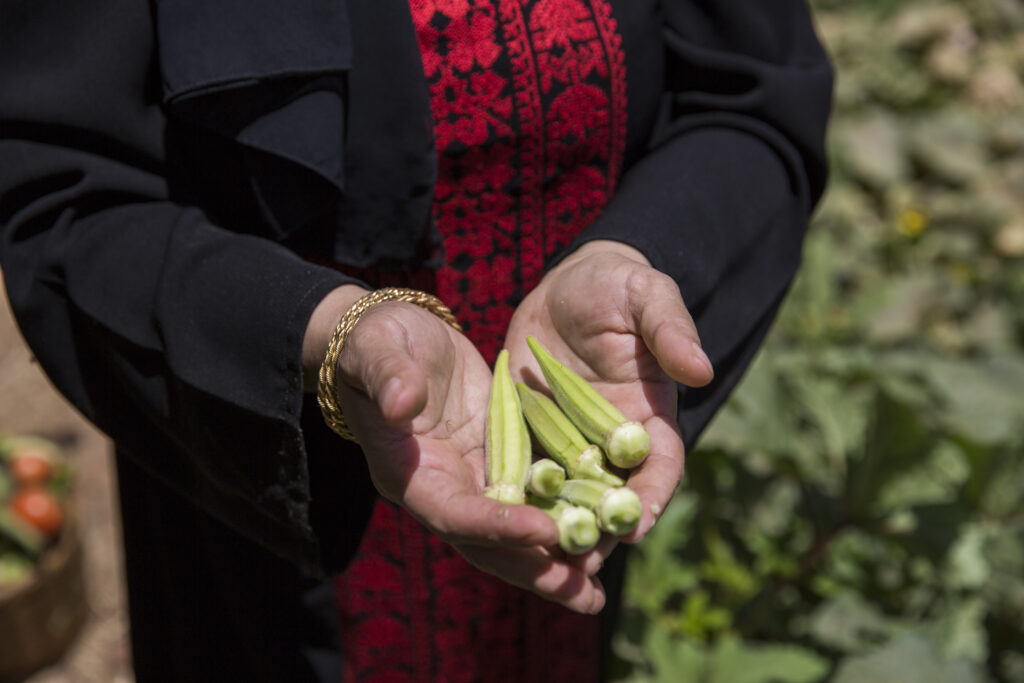
One of the most powerful levers for transformation is regional cooperation. Not only does it allow us to share experiences and foresight approaches among practitioners, but it also aligns with the need for more localized, resilient food systems. This is especially critical in times when global markets are being challenged, multinational food companies continue to concentrate their power and food is more and more used for geopolitical purposes.
We need shorter, regional supply chains and production systems that are better tailored to local contexts. Regional platforms are essential for this. They help us valorise knowledge and foster innovation where it matters most—on the ground.
The leadership we need
Food system transformation demands leadership on many fronts.
We need business leaders who are willing to shift course—who can rethink business models that currently drive unsustainable outcomes and align their strategies with public goals like healthy diets and environmental sustainability.
But we also need leadership that can manage conflict and mediate between diverse interests. Sometimes, this means making bold policy decisions, even when powerful actors resist change. That kind of leadership isn’t easy—but it’s necessary.
A call for courage and collaboration
My hope for this workshop is that it becomes a space of real collaboration. A space where participants listen to each other, share not only their successes but also their failures, and resist the urge to simply push their own agendas.
We need the courage to explore the unknown together. To ask hard questions. To face the uncomfortable truths. Because only then can we unlock the systemic changes our societies so urgently need—and that, too often, are still moving too slowly or stalling altogether.
I look forward to learning with and from all of you in Jordan.
The preparations for the 4th Global Foresight4Food Workshop are well underway. A diverse group of participants are expected to join and use this opportunity to share their ideas and insights as well as connect with a growing community of foresight practitioners. In regard to this, we asked Dr. Rathana Peou Norbert-Munns, Sustainable Development, Agrifood System Policies and Climate Foresight Planning Specialist at FAO and a valuable member of the Foresight4Food steering group to share some thoughts and her expectations from the workshop.
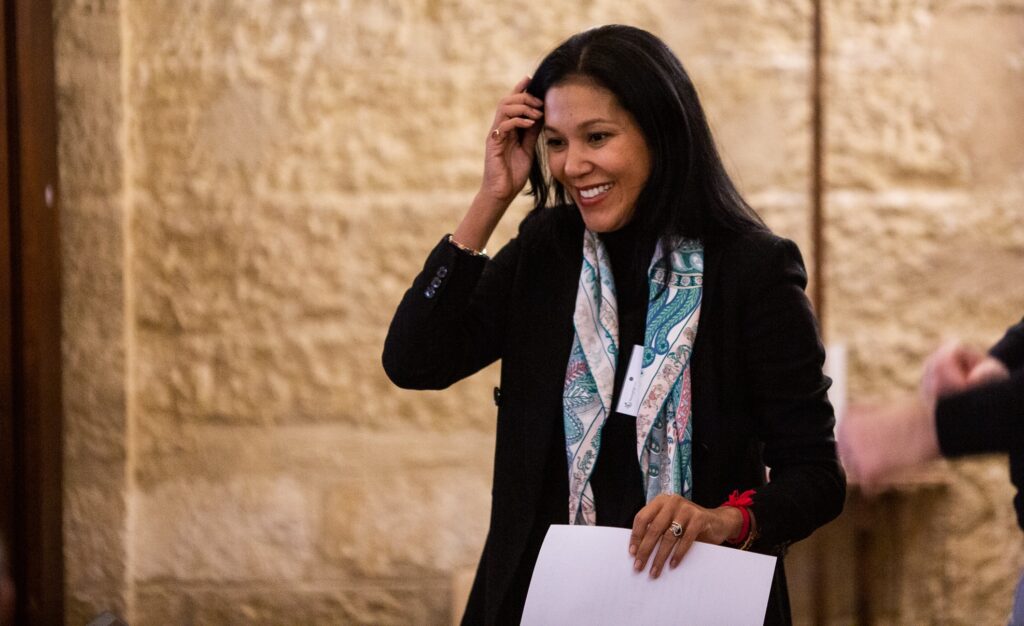
The biggest challenge our world is facing that keeps me up at night…
If I had to pinpoint the most significant challenge, it would undoubtedly be climate change. However, as a foresight planning specialist, I’d say that a forward-thinking planning approach helps various stakeholders recognize not only the widely acknowledged issues but also those that are just beginning to emerge, the so-called early signals. These insights enable us to map out risks across multiple time horizons and envision plausible futures and encourage us to rethink our current actions and adopt innovative approaches which are urgently need it. Ultimately, while these concerns sometime disrupt my sleep, it definitely fuels my daily actions with a clear, long-term vision for sustainable change.
What I look forward to in the 4th Global Foresight4Food workshop
My expectations are set high to leverage the tool of Foresight for Food System Transformation effectively. In a global polycrisis, there is a pressing need for innovative and strategic thinking to guide decisions that ensure sustainable food systems.
This year’s theme of the Foresight4Food Global Workshop captures the essence of what we aim to achieve: a shift in how we envision and shape the future of food systems. It promises to be a crucial platform for sharing insights, fostering collaborative efforts, and enhancing the capabilities of practitioners through knowledge exchange and community building. It is an opportunity to connect with a diverse network of experts and stakeholders, all driven by the common goal of transforming food systems for a better future. By creating a safe space for discussion and reflection, the workshop will challenge us to consider innovative accelerators for our work and identify necessary changes in our approaches.
“This year’s theme of the Foresight4Food Global Workshop captures the essence of what we aim to achieve: a shift in how we envision and shape the future of food systems.”
The workshop will also allow us to critically assess vested interests within the food systems, ensuring that our solutions are inclusive and equitable, truly embodying the principle of leaving no one behind.
On a personal level, I expect that the insights I’ll gain from the workshop will be integral to refining approaches developed for key programs in the Asia Pacific region. By learning the latest foresight methodologies and emerging trends, I aim to reflect with an increasing community of practitioners and find avenue to collaborate more effectively with stakeholders to implement resilient and sustainable food policies and practices.
Some ways to make the workshop more effective, my two cents
To ensure the workshop has a lasting impact on cross-sector collaborations and actions towards food system transformation, Foresight4Food must foster an environment of honesty where participants feel secure in openly sharing both challenges and innovative ideas. Encouraging creative and bold thinking is essential, as it will drive the development of groundbreaking strategies that transcend traditional sector boundaries and catalyze meaningful changes through transformative foresight.
Foresight4Food is organizing its 4th Global Workshop in June titled “Reframing Food Futures: Making Foresight Transformative”. To raise the tip of the curtain on this exciting event, we have asked Mohammad Monirul Hassan, Foresight4Food Country Facilitator and Global Alliance for Improved Nutrition (GAIN) Advisor, to share some of his thoughts and expectations. Here is what he has to say:
As a food systems practitioner, what keeps me up at night
Bangladesh has made significant progress in food security and nutritional status over the past decade, with a growth rate of food production much higher than population growth. The country’s food grain production self-sufficiency has been sustainable and stable, and access to food has improved over time. However, the country still faces challenges in ensuring food and nutrition security for its growing population of around 170 million, projected to reach over 186 million by 2030.
The recent COVID pandemic and the subsequent Russian-Ukraine war have put enormous pressure on the food supply in the country, as Bangladesh is a net food importing country. We have achieved self-sufficiency in rice and some other products; however, the country is still dependent on wheat imports, edible oil, lentils, pulses, and spices. Due to the depreciation of Bangladesh’s Taka against the US Dollar, import costs have increased significantly which impacted the price of commodities both in the food and non-food sectors. The lower-income households are struggling to meet daily needs due to income losses and price hikes.
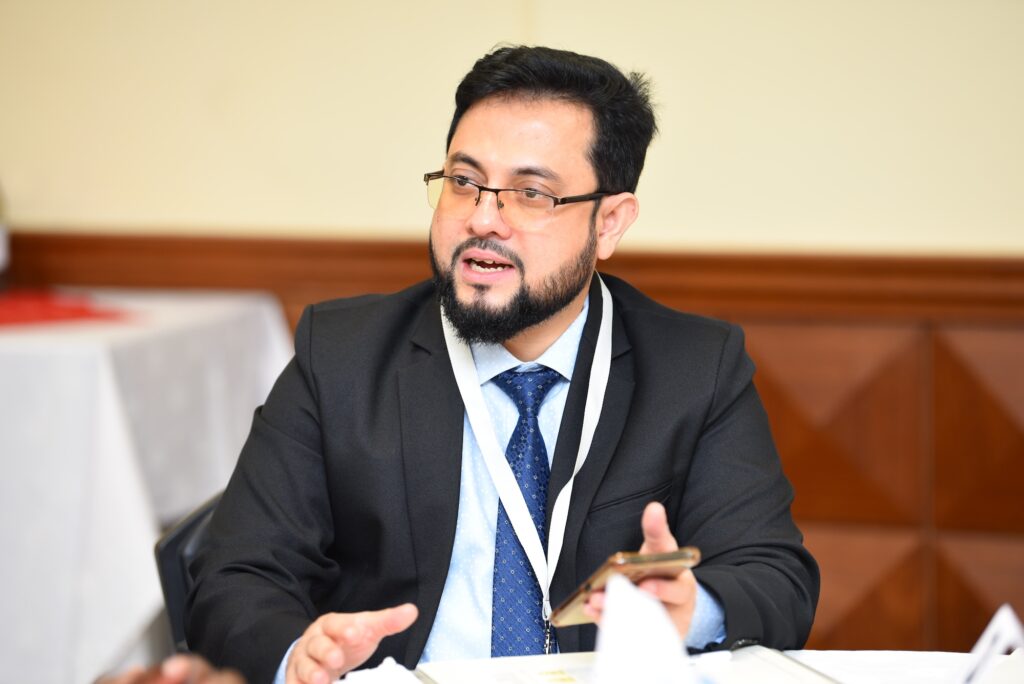
The recent COVID pandemic and the subsequent Russian-Ukraine war have put enormous pressure on the food supply in the country, as Bangladesh is a net food importing country. We have achieved self-sufficiency in rice and some other products; however, the country is still dependent on wheat imports, edible oil, lentils, pulses, and spices. Due to the depreciation of Bangladesh’s Taka against the US Dollar, import costs have increased significantly which impacted the price of commodities both in the food and non-food sectors. The lower-income households are struggling to meet daily needs due to income losses and price hikes.
As a Bangladeshi citizen and a food systems practitioner, a thought that concerns me is that the emerging negative trends and uncertainties like climate change, population growth, income inequality, agricultural labor scarcity, and barriers to access to safe and nutritious food may push back the decade-long achievement of the food and nutrition security of the country in the long run.
Climate change adaptation is the key priority in Bangladesh. Bangladesh is one of the most vulnerable countries in the world to climate change impacts. Developing climate-resilient technologies that exhibit tolerance to drought, flood, heat, cold weather, and salinity can help mitigate production losses caused by the frequent occurrence of extreme weather patterns anticipated due to climate change. Alongside conventional staple crops like rice, wheat, and maize, more focus is given to advancing technologies for protein-rich crops such as pulses and beans, as well as vitamin-rich fruits and vegetables. Enhanced breeds of cattle and poultry that possess the ability to endure harsh climatic conditions are being developed.
The focus is given to enhancing productivity through advances in crop, livestock, and fisheries management, either individually or in combination with genetic enhancements. Improved management methods in agriculture can enhance profitability for producers while also promoting sustainability by optimizing the use of inputs such as seeds, fertilizers, pesticides, and water, and lowering the environmental impact of farming. To improve the food and nutritional situation, more emphasis needs to be placed on coordination, enhancing partnership and policy coherence, and strengthening implementation means.
FoSTr’s support in Bangladesh’s vision of sustainable food systems
Food system transformation is high on the political agenda in Bangladesh with the formulation of the National Food and Nutrition Security Policy 2020, its Plan of Action (PoA) 2021-2030, National Agricultural Policy 2018, and Bangladesh’s contribution to the UN Food System Summit 2021 and the UNFSS +2 Stock Taking Moments (STM). Bangladesh has outlined its “Making Vision 2041: A Reality-Perspective Plan of Bangladesh 2041”, Dhaka Food Agenda 2041, Smart Bangladesh Vision 2041, and the Bangladesh Delta Plan 2100, which depict the country’s aspiration and preparation towards a developed nation.
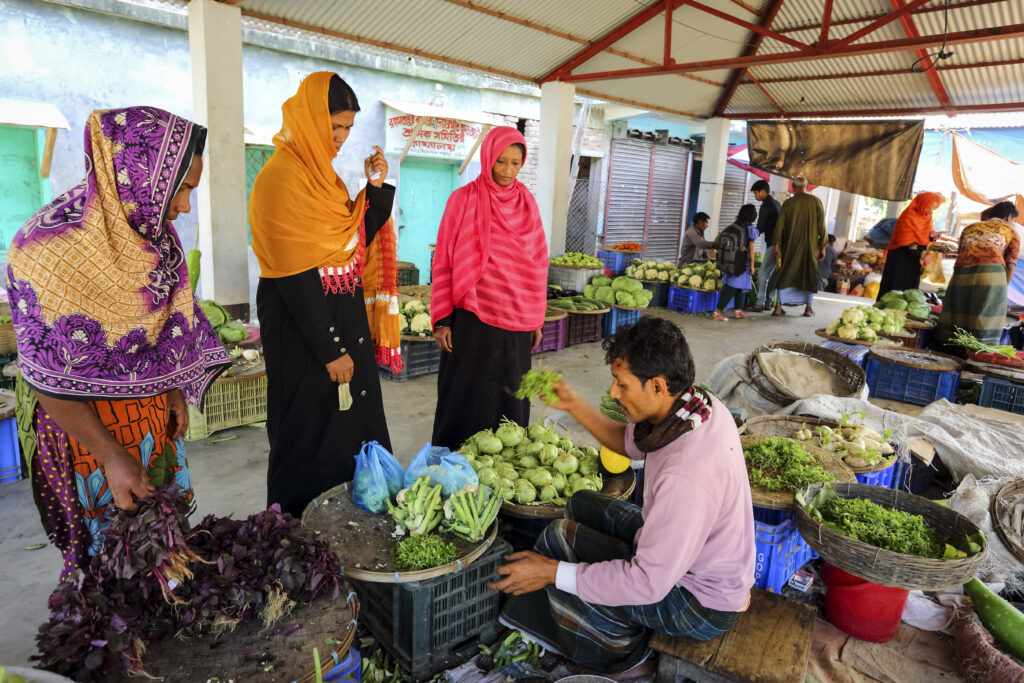
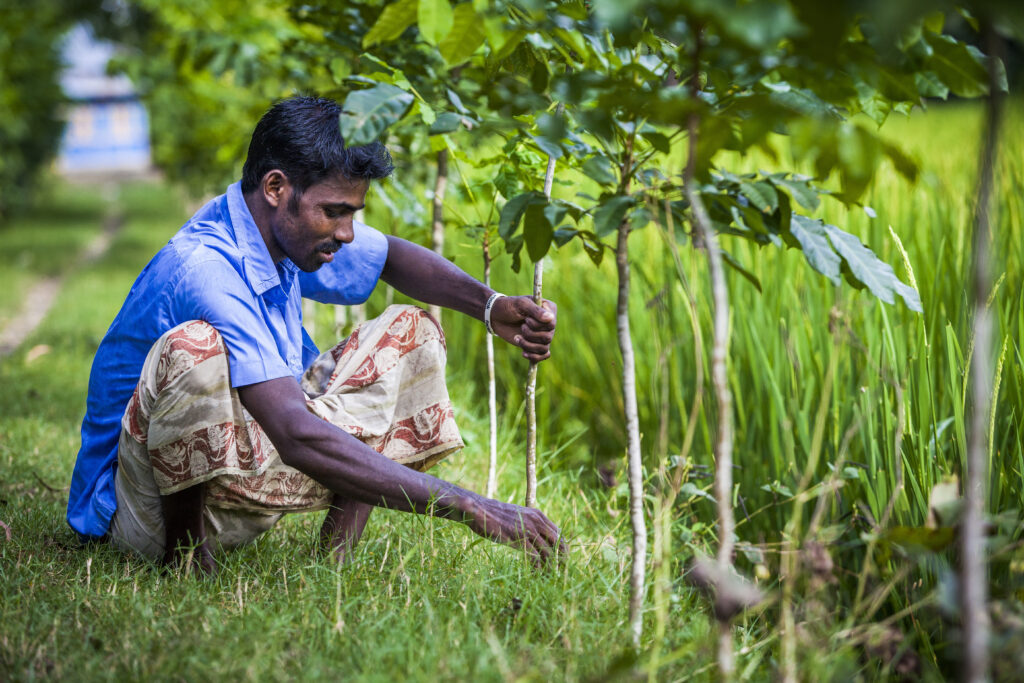

To support that, the Foresight for Food Systems Transformation (FoSTr) program is providing a flexible decision-support facility to support Bangladesh with evidence-based foresight and scenario analysis that goes along the country’s vision to work towards sustainable food systems in Bangladesh.
As part of reporting to UNFSS STM+4 (2025) and fulfilling the Honorable Prime Minister’s commitment to UNFSS, foresight analysis of the food systems will complement the data, research, risk analysis, and scenarios development for the future food systems and provide necessary guidance for food systems transformation.
Expectations of the Foresight4Food Global Workshop experience
For this year’s Global Foresight4Food Workshop, the theme is “Reframing Food Futures: Making Foresight Transformative”. What I seek from this workshop is an opportunity for cross-country learning about using foresight tools, their drawbacks, and ways for improvement for better foresight analysis, as well as areas of collaboration, partnerships, and future investments for the country’s food systems transformation. I also think this will be a wonderful opportunity to showcase how Bangladesh is transforming its food systems with its various challenges.
From a personal point of view, I expect that the learning and insight of the workshop will help me understand the food systems transformation agenda in Bangladesh. It will also help me in policy advocacy in prioritizing areas and activities that build sustainable and resilient food systems.
Another aspect of the Foresight4Food Global Workshop that I hope for is that it will create space for highly interactive dialogue, igniting creativity and sparking actionable progress on the foresight agenda, offering cutting-edge updates on foresight practice and applying foresight to country realities.
The workshop will contribute to understanding how other countries are transforming their food systems, what works and what doesn’t, what matters most, and what supports are required, etc. The workshop will be a great opportunity where you’ll be able to build networks, partnerships, investment opportunities, and investment progress tracking and implementation. Moreover, the workshop will help governments reframe some of the initiatives and prioritize them based on the political economy contexts.
All in all, it will be truly exciting to see energetic participation from food systems researchers, practitioners, and government and private sector representatives gathered under one roof to talk about making foresight transformative.
Reflections on the Third Global Foresight4Food Workshop in Montpellier 2023
By Bram Peters, Food Systems Programme Facilitator
Strike? What strike?
Amid the turbulence created by strikes in France, a diverse and committed group of people still managed to get to and from the Third Global Foresight4Food Workshop in Montpellier from 7-9 March.
Perhaps, as foresight practitioners, we should have seen it coming! You would think that foresight practitioners who make it their business to look into the future might be better at anticipating turbulence, or at least a substantial level of social upheaval.
Why go through the trouble to come anyway? Because food systems are in turbulence as well. Never has there been a more urgent need to transform food systems. More than 3.1 billion people globally do not have access to healthy diets. The impact of climate change in the form of droughts and disasters is increasing. Agri-food systems are responsible for one-third of greenhouse gas emissions. The Covid-19 pandemic and the Russia war in Ukraine have shown how integrated, yet fragile, the global food system is.
We need foresight in food systems transformation
Yet, “the greatest danger in times of turbulence is not the turbulence; it is to act with yesterday’s logic” (according to futurist Peter Drucker). That’s where foresight comes in.
We need a long-term perspective to explore alternative pathways to reach desirable or avoid undesirable food system changes.
Following from the UN Food Systems Summit in 2021, many countries are searching for ways to navigate change and develop anticipatory policy to guide them.
As such, the issue on the table was: how can the foresight community of practice offer support and relevant advice to food system stakeholders?
Creating a safe space to think, connect and engage
In Montpellier, Foresight4Food brought together a diverse group of foresight practitioners, researchers, users of foresight and implementors of food systems approaches to discuss how foresight can contribute to national level food systems transformation pathways amid all this turbulence.
The Masterclass on the 7th generated a lot of energy, a shared language, and many practical explorations of tools and methods. The main Workshop on the 8th and 9th saw interactive exchanges, presentations of valuable projects and sharing of insights.
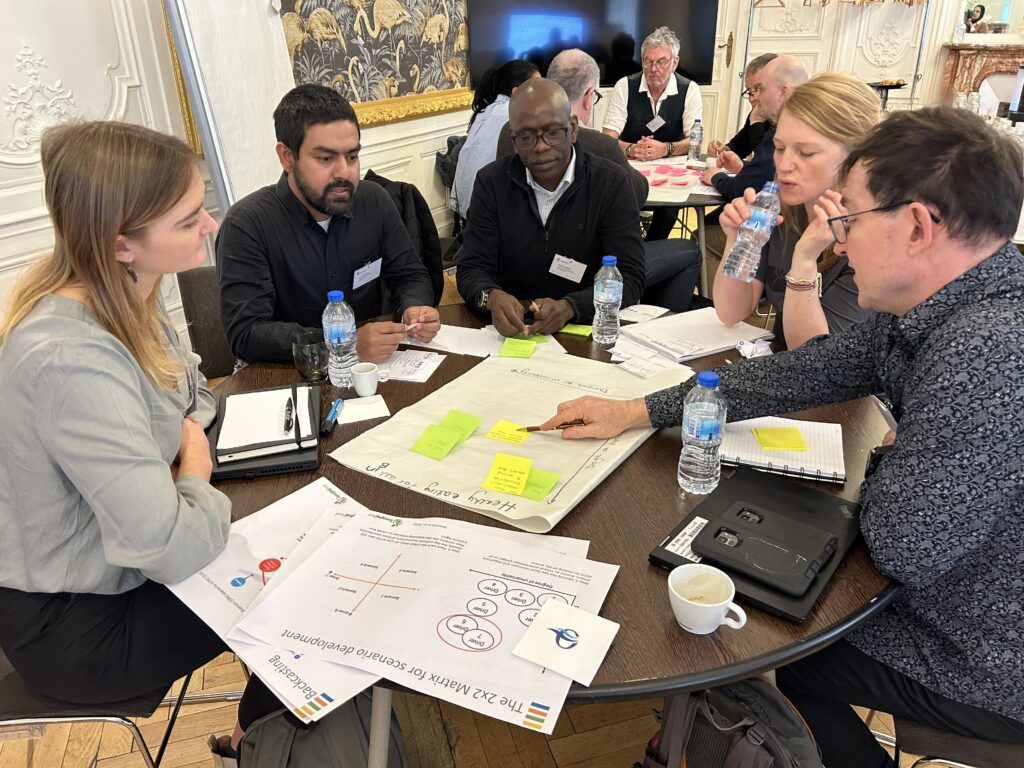
Among others, organisations such as FAO, CGIAR, GFAR and CIRAD shared ground-breaking applications of foresight thinking linked to food systems. There were cases from Asia, Africa; thematic cases on food systems data; new and past initiatives; dashboards and multi-stakeholder processes.
Researchers and data experts, such as from Wageningen University and Food and Land Use Coalition, shared innovative tools and models to advance new ways of projecting trends.
Critical perspectives were shared. Insights were brought from Africa and Asia, such as by Forum for Agricultural Research in Africa, and much more.
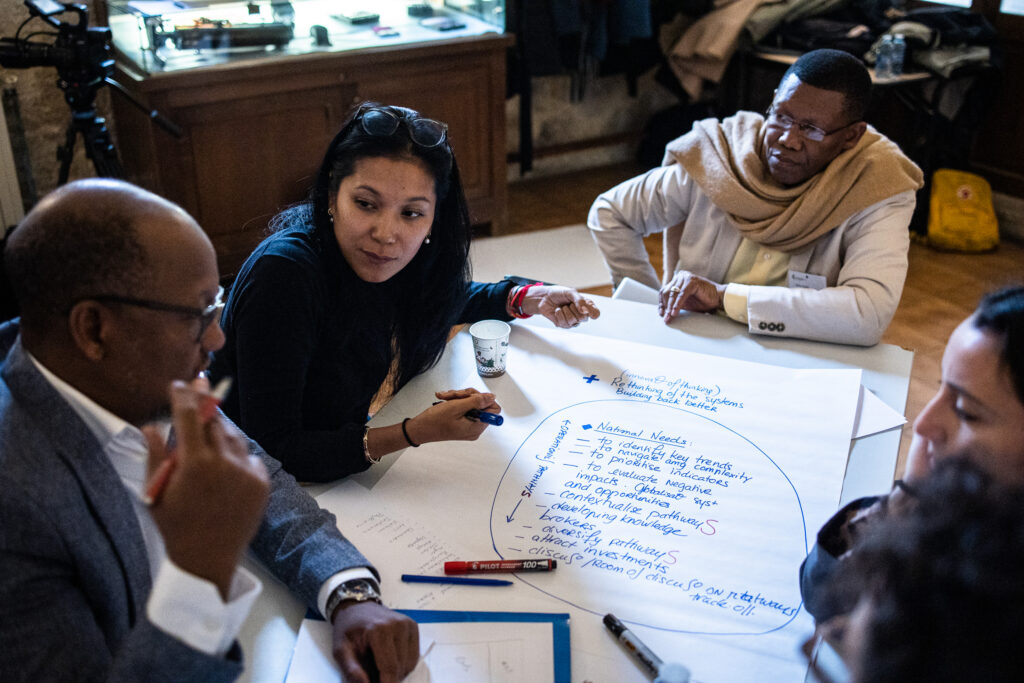
Moving the needle: developing our forward agenda
We, as Foresight4Food team, gained a lot of energy and motivation to continue fostering this vibrant network.
A few pickings of things we want explore moving forward. Develop and encourage ‘Communities of Practices’ through active partnership principles. Make a meta-analysis of existing food system foresight cases and comparative insights and lessons. Create guidance for foresight community on the process of actually doing foresight for food systems. Develop key principles for quality approaches and a toolbox to support implementation.
Thankfully, even in the face of the French strikes, a quality characteristic among foresight practitioners is the ability to be adaptable and flexible – as is needed when you work with the complexity of food systems.
